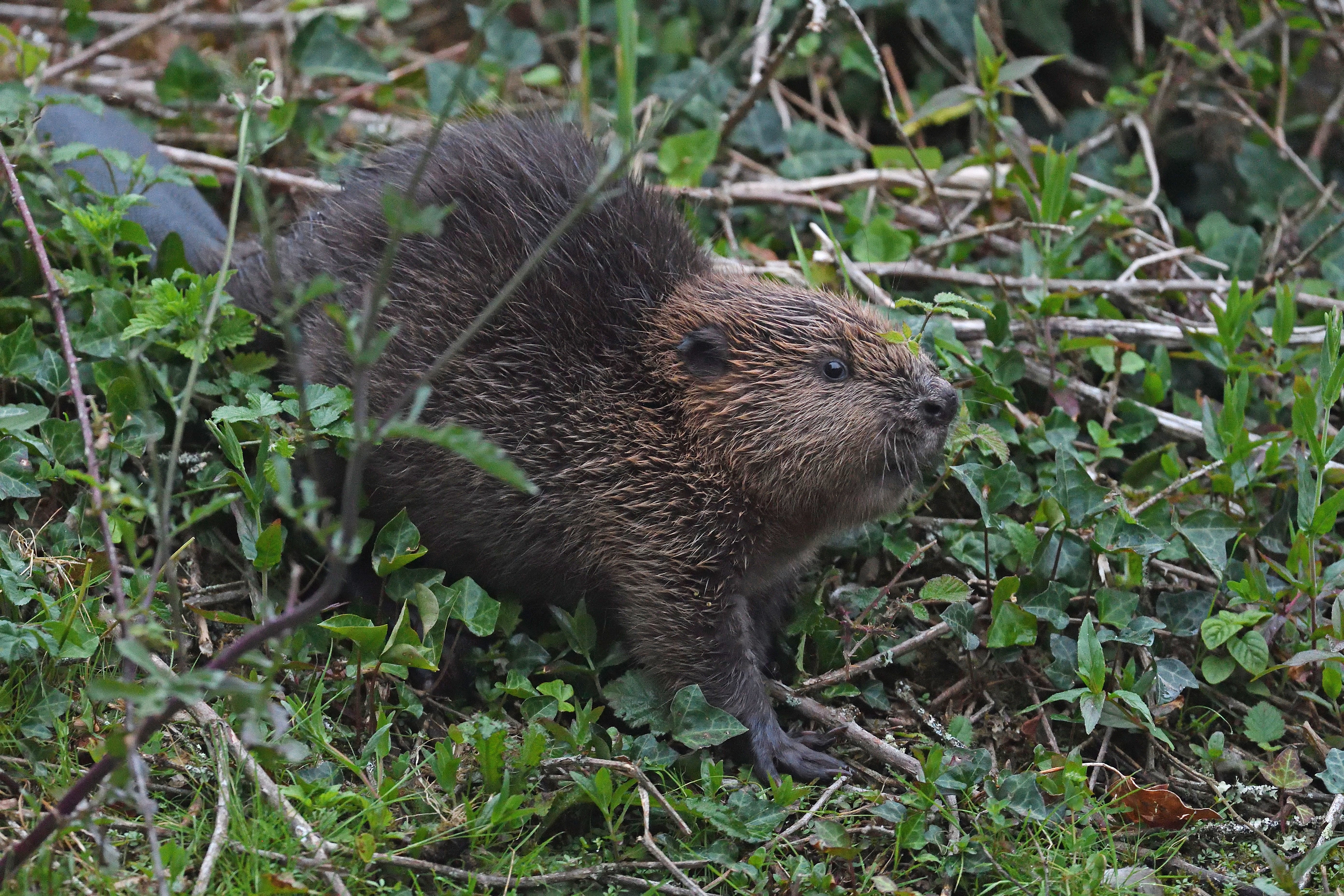Beaver dams cut flood risk on Cornish site, say researchers
Dams and ponds created by beavers on Woodland Valley Farm near Truro have dramatically slowed waterflow through the site.

A family of beavers has significantly reduced the risk of downstream flooding since they were introduced to a farm in Cornwall five years ago, research has shown.
This Friday, Woodland Valley Farm near Truro, home of the Cornwall Beaver Project, is celebrating the fifth anniversary of the arrival of Chewy and Willow, who now have two kits.
Researchers from the University of Exeter have found dramatic changes in water flow due to the dams and ponds created by the new residents.
It now takes water an hour to travel through the site, compared with just 15 minutes beforehand, offering more protection to the village of Ladock downstream, which is prone to flooding.
The researchers found the beavers’ ponds have increased surface water storage by approximately 1,550 cubic metres, as well as increasing the amount of water absorbed into the surrounding floodplain.
The height the stream rises to after heavy rain is also up to 30% lower than before the beavers arrived in 2017.
Dr Alan Puttock, a researcher at the University of Exeter, said: “The results from Woodland Valley Farm have helped to show that beavers could play a role in delivering natural flood management.
“Following beaver introduction, peak flows after heavy rainfall events have been reduced by up to 33%.”
The creation of new ponds and wetland, as well as increased light close to the water due to changes to the tree canopy have also provided a boost to biodiversity, ecologists found.
Ten bird species previously absent from the site have been spotted there, including the threatened willow tit, water rail and green sandpiper.
Harvest mice, water shrews and even a polecat have been recorded, as well as 17 varieties of dragonfly and 11 species of bat.
The beavers have also proved a big draw for visitors, and in 2022 a new boardwalk was completed on the site meaning the enclosure can now be accessed by people with mobility issues.
Currently there are five reintroduction programmes in Cornwall, but the Cornwall Beaver Project, working in partnership with the Cornwall Wildlife Trust, are calling for more releases to replicate the benefits elsewhere.
Chris Jones, owner of Woodland Valley Farm and communities director at the Beaver Trust, said: “We know we need to do more to tackle the nature and climate crisis, and welcoming beavers back to our countryside will certainly help us do this.
“And we need to ensure measures are in place to manage the species as its population expands.”
Cheryl Marriott, head of conservation at Cornwall Wildlife Trust, said: “After five years of habitat engineering by the beavers, the landscape at Woodland Valley Farm is now completely unrecognisable from its initial state.
“They’ve breathed new life into this habitat and their natural dam-building behaviour has delivered lots of benefits for both wildlife and people.”
She continued: “It’s amazing what can happen when you let nature look after itself, without the need for humans to manage it.
“With the ever more extreme weather events that we’re getting, beavers give us hope that our streams and all the wildlife that relies on them can adapt to the changes. We must use their natural ‘superpowers’ in the sustainable, long-term restoration of our wetlands.”
Bookmark popover
Removed from bookmarks